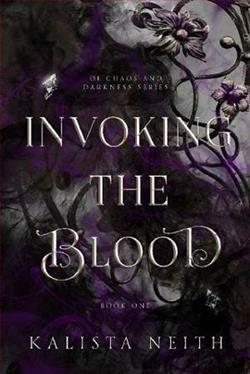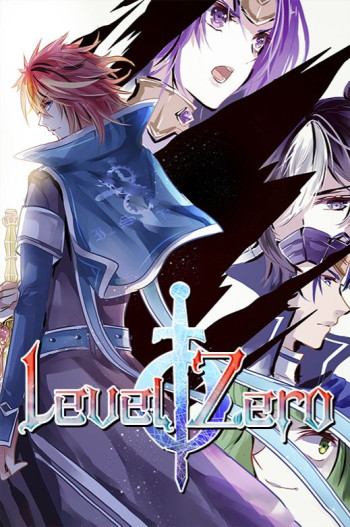Summary

Invoking the Blood
by Kalista Neith
What could happen in fifteen minutes?
Faye agreed to her sister’s brilliant idea to sneak into the Hunter’s Moon ball. A night the vampires in attendance held sacred, lusting under the eerie glow of the blood red moon. Faye was no vampire. She wasn’t even a race that possessed magic. Her ceremony failed, marking her an Anarian. A mortal without magic.
After a run in with the Shadow Prince, Faye begins dreaming of him. His yearnful gaze leaves her feeling cherished after she wakes. A pleasant daydream, since men like him didn’t exist. Not for women like her.
But as days pass and the dreams intensify, the Shadow Prince comes for her. His gaze filled with the same yearning he held for her during their shared dreams. Until he realizes she’s an Anarian.
Abducted and confined in his home in Hell, Faye is left only with his promise to release her after he breaks the tie binding his life to hers. But with each heated exchange she can almost see the man that longed for her in her dreams.
The one who cherished her and tempted her heart.
.
Read
Invoking the Blood on http://kissnovel.net
Martial Peak Reviews
Invoking the Blood by Kalista Neith is a captivating foray into a world where the boundaries between mortals and the supernatural blur, and the stakes of love and power intertwine in unexpected ways. The novel opens with a tantalizing premise: Faye, a mortal without magic, finds herself drawn into a realm dominated by vampires during the Hunter’s Moon ball, a night steeped in tradition and allure. This initial setup not only piques curiosity but also sets the stage for a rich exploration of themes such as identity, desire, and the struggle for agency in a world that often seeks to define individuals by their lineage or abilities.
Faye is introduced as an Anarian, a term that signifies her lack of magical prowess, which is a source of both vulnerability and strength. Her character is relatable, embodying the insecurities and aspirations of someone who feels out of place in a world that values power above all else. The contrast between her mortal existence and the supernatural beings around her creates a compelling tension that drives the narrative forward. Neith skillfully develops Faye’s character, allowing readers to witness her evolution from a hesitant participant in the vampire world to a woman who learns to navigate her circumstances with resilience and courage.
The Shadow Prince, a pivotal character in the story, serves as both a catalyst for Faye’s transformation and a reflection of her internal struggles. Initially, he embodies the archetype of the brooding, enigmatic figure, but as the story unfolds, Neith peels back the layers of his character, revealing a depth that complicates the typical villain trope. Their relationship is marked by a series of intense exchanges that oscillate between desire and conflict, showcasing Neith’s ability to craft a romance that feels both passionate and fraught with tension. The dreams that bind Faye and the Shadow Prince together serve as a metaphor for the longing and connection that transcends their differences, making their eventual confrontation all the more poignant.
One of the most striking aspects of Invoking the Blood is its exploration of the theme of agency. Faye’s abduction and confinement in the Shadow Prince’s home in Hell raises questions about autonomy and the power dynamics inherent in their relationship. While she initially appears to be a victim of circumstance, her journey reveals a growing sense of self-awareness and determination. Neith deftly navigates the complexities of consent and desire, allowing Faye to reclaim her narrative and challenge the expectations placed upon her by both her captor and society at large.
The world-building in Neith’s novel is another highlight, as she immerses readers in a richly imagined landscape filled with intricate lore and vivid imagery. The Hunter’s Moon ball, with its eerie glow and palpable tension, serves as a backdrop for the unfolding drama, while the realm of Hell is depicted with a blend of darkness and beauty that enhances the story’s gothic undertones. Neith’s descriptive prose invites readers to visualize the settings and feel the emotions of the characters, creating an immersive reading experience that lingers long after the final page is turned.
Moreover, the pacing of the novel is well-executed, balancing moments of tension with quieter, introspective scenes that allow for character development. The gradual buildup of Faye and the Shadow Prince’s relationship keeps readers engaged, as they are drawn into the complexities of their bond. Neith’s ability to weave together elements of fantasy, romance, and psychological depth sets Invoking the Blood apart from other works in the genre, making it a standout read for fans of supernatural romance.
In comparison to similar stories, such as Sarah J. Maas’s A Court of Thorns and Roses series or Jennifer L. Armentrout’s From Blood and Ash, Neith’s work offers a fresh perspective on the dynamics of power and desire. While both authors explore themes of love and sacrifice within fantastical settings, Neith’s focus on Faye’s journey as an Anarian provides a unique lens through which to examine the intersection of mortality and the supernatural. The emotional depth and character-driven narrative in Invoking the Blood resonate with readers, inviting them to reflect on their own experiences of longing and identity.
Overall, Invoking the Blood is a beautifully crafted tale that captivates with its rich character development, intricate world-building, and exploration of profound themes. Kalista Neith has created a narrative that not only entertains but also challenges readers to consider the complexities of love, power, and self-discovery. Faye’s journey from a powerless mortal to a woman who learns to assert her agency is both inspiring and relatable, making this novel a must-read for anyone who enjoys a blend of romance and fantasy. As the story unfolds, readers will find themselves eagerly turning pages, drawn into a world where the heart’s desires can lead to both salvation and peril.
























Reviews 0
Post a Reviews: